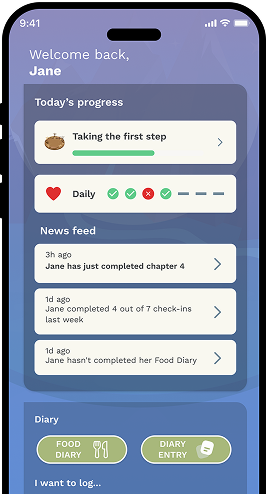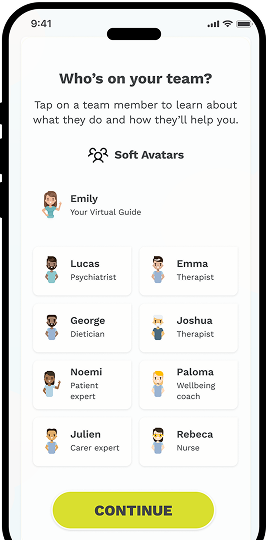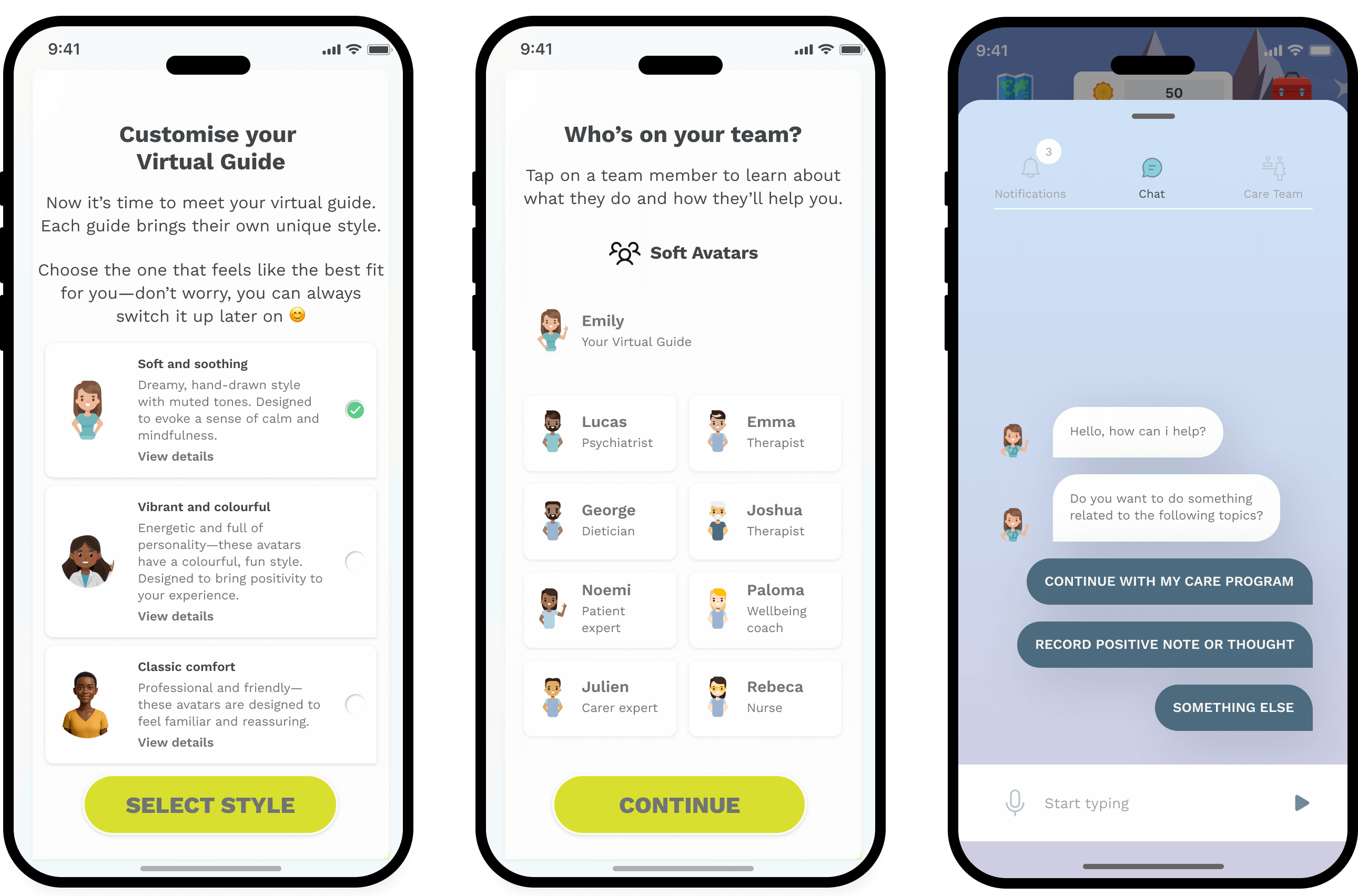
Eating disorders care for children, teens and adults. Support for parents and carers to strengthen recovery
Together.
Feel better.
Live Brighter.
Proud Partners of the


WELCOME TO
UNIVA
A new care experience for eating disorders
Personalised self-help care programmes
for carers and their loved-ones
Personalised self-help care programmes
for carers and their loved-ones


100s of real videos
to support learning in self-help programmes


100s of real videos
to support learning in self-help programmes
Your own recovery companion
and avatar team to
support you 24/7
Your own recovery companion
and avatar team to
support you 24/7


Therapy & Carer Coaching
with eating disorder experts via video and message chat


Therapy & Carer Coaching
with eating disorder experts via video and message chat
Want to find out more?
Book a free 15-min appointment callwith a member of the Univa care team. We'll talk through your needs, help you understand your options, and guide you to the right support, whether it's for you, your loved one, or both.
The Univa difference
The first digital care programme designed to uniquely serve both individuals with eating disorders and their support network. Whether it's parents, partners, siblings, or friends providing care, we empower everyone involved in the recovery journey with specialised tools and guidance.

Never face recovery alone with our compassionate virtual care team - always available when you need guidance. Each specialist avatar brings unique expertise to support different aspects of your journey
- Peer Avatar: Shares wisdom from hundreds of real experiences, understanding exactly what you're going through
- Therapist Avatar: Provides personalised strategies proven to help overcome eating disorder challenges
- Dietitian Avatar: Offers gentle support with meal planning and helps you rebuild a positive relationship with food
- Additional specialists in emotional health, medical support, mindfulness, and daily living skills

Developed through genuine partnership with people who have lived experience of eating disorders, dedicated family members, and specialised clinicians - ensuring our platform addresses real needs with authentic understanding and practical solutions.

Grounded in clinically validated approaches including Cognitive Behavioural Therapy for Eating Disorders (CBT-ED), specialised Family Therapy interventions, and the renowned New Maudsley Carer Programme - ensuring every aspect of our platform is backed by research and proven effectiveness

Access specialised support wherever you feel most comfortable - no travel barriers, no waiting rooms, just quality care that fits seamlessly into your life and respects your personal boundaries.

Watch your progress bloom through our therapeutic garden visualisation - where each step forward nurtures growth, transforms abstract progress into visible achievements, and makes your healing journey something you can see and celebrate daily.



How Univa helps in real life

“I think Univa has so much to offer. It feels like a friendly companion that guides you towards better health and self-understanding in a gentle and structured way. The focus on positivity, reflection, and privacy makes it an amazing tool for anyone wanting to take care of their wellbeing and be able to express it privately with no judgement.”
Young girl with anorexia

“This app is a lifechanger. I wish it was around a few years ago when my daughter was first diagnosed as we had no support.”
Mum with a daughter diagnosed with anorexia

“What stood out most to me was how Univa doesn’t just focus on one area of health, but really takes a holistic approach by balancing body, mind, and mood with simple, practical tools- catering for everyone with their own unique needs.”
Young girl with anorexia

“The app feels interactive and engaging. I enjoyed the real life videos and the chapter quiz, which gave the experience a human touch and kept me motivated.”
Teenage boy with anorexia

“I especially loved how the app makes the experience feel personal and calming.”
Teenage girl with anorexia
Still not sure which plan is right for you?
Book a free 15 minute appointment call with a member of the Univa Care Team.
We’re here to help you find the right path forward.
Book a free 15-min appointment callFrequently Asked Questions
If you’re currently receiving therapy elsewhere, we recommend focusing on one structured therapy process at a time to maintain consistency. However, Univa Therapy is a powerful alternative to other private therapy options - offering expert clinicians, evidence-based digital integration, and a dual-app experience that supports both the person with the eating disorder and their family.
Univa offers one of the most comprehensive and effective online supports available for parents and carers. It’s the only platform with a dual-app system - one for the parent or carer, and one for the individual with anorexia or restrictive eating - working together through a structured, self-help care programme.
Univa’s approach is built on the gold-standard, evidence-based therapies recommended by NICE: Family Therapy for Anorexia (FT-AN/FBT) and the New Maudsley Carers Model. Together, these approaches empower families to restore healthy eating, rebuild communication, and reduce stress at home.
With digital care plans, personalised carer coaching, and optional therapy sessions led by eating-disorder specialists, Univa gives families real-world skills and support they can access instantly - anytime, anywhere, without a referral.


